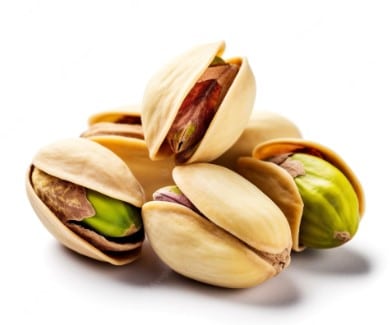

Symptoms of pistachio allergies in dogs can include itching, redness, and inflammation of the skin, as well as respiratory issues such as coughing, sneezing, and wheezing. Furthermore, dogs with this allergy may experience digestive upset, including vomiting or diarrhea. Additionally, swelling of the face, mouth, eyes, or ears is possible.
The cause of pistachio allergies in dogs is likely due to an ingredient in the pistachio nut, such as proteins or oils that act as an allergen when introduced into the body. This causes the immune system to react, leading to the aforementioned signs and symptoms seen in affected dogs.
The diagnosis of pistachio allergy in dogs typically begins with a physical examination by a veterinarian. The vet will initially look for signs of skin inflammation and other allergy-related symptoms. Blood tests may also be conducted to determine the presence of specific antibodies that can confirm the presence of an allergy. If necessary, skin tests may also be requested in order to identify the specific allergen causing the reaction. Once the allergen is determined, a specific treatment plan can be determined.
The severity of pistachio allergies in dogs can vary from mild discomfort to life-threatening anaphylaxis; thus, it is important for pet owners to be aware of any symptoms of an allergic reaction and contact their vet immediately. The mortality rate for untreated pistachio allergies in dogs is unknown.
The treatment for a pistachio allergy in dogs typically includes avoiding the allergen and managing any symptoms that may arise. Depending on the severity of the symptoms, your veterinarian may recommend antihistamines, steroids, fatty acids, and/or other medications to help reduce the inflammation or other reactions. Additionally, dietary changes such as reducing the amount of processed foods may be recommended. In some cases, allergen-specific immunotherapy may be an option for treating the allergy.
The best way to prevent an allergic reaction in dogs to pistachios is to avoid feeding them pistachio products. If a dog is known to have a pistachio allergy, then all pistachio products should be removed from their diet and all other foods should be checked for any traces of pistachio ingredients. Additionally, households should be kept clean and free of dust and other allergens that may trigger the allergy. Last, a hypoallergenic shampoo may be used to reduce irritants on the skin.
Dog allergies, including pistachio allergies, are generally limited to the dog and are not contagious. Therefore, humans cannot catch this allergy from contact with a dog and it cannot be spread from one dog to another.
Home remedies that may be useful for managing pistachio allergies in dogs include avoiding pistachios or products that contain pistachios, providing anti-itching shampoos and/or ointments, monitoring the dog’s environment for potential allergens, and providing a diet that eliminates or minimizes allergenic foods. Additionally, consulting with a veterinarian regarding an allergy test and possible antihistamine or steroid treatments may be helpful.
Although these home remedies may help alleviate pistachio allergies in dogs, it is important to note that they may not work for every dog, and it is always best to consult with a veterinarian to determine the best course of treatment for your pup.
Several dog breeds are prone to developing a Pistachio allergy. These breeds include Bulldogs, Dalmatians, German Shepherds, Poodles, Shih Tzus, and Rottweilers. These dogs may experience allergic reactions such as skin reactions, respiratory distress, vomiting, and diarrhea upon ingesting Pistachios. Additionally, these dog breeds may also experience allergic reactions to other food items such as dairy, eggs, beef, corn, or soy. It is recommended that owners of these breeds monitor their dog’s eating habits closely to avoid accidental ingestion of any food item they may be allergic to.
Has your dog ever experienced pistachio allergies? If so, how did they respond to the symptoms? How did you feel while managing the process? Regardless of the outcome, we wish you and your pup all the best!